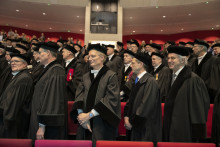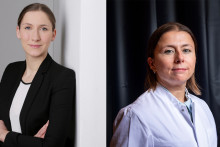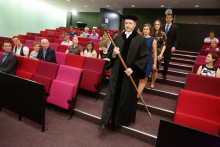The timing, shortly before 1 April, might make you think twice, but the call by The Young Academy stems from a long-standing stream of criticism of the hierarchy at Dutch universities.
The Young Academy is a group of leading scientists of a relatively young age, affiliated with the Royal Netherlands Academy of Arts and Sciences (KNAW). Many of the members are themselves already full professors, even if this is not immediately visible on the members page on the website: there, the titles are left out and you have to click further to see them.
Right to confer doctorates
It began years ago with criticism of the right to confer doctorates. Assistant and associate professors frequently supervise PhD candidates, but are not permitted to confer doctorates; that is the purview of full professors. Since 2017, that right has been expanded somewhat, but not sufficiently, according to The Young Academy.
Moreover, an argument that is steadily gaining ground is that the pyramid of the universities, with full professors at the top, leads to a lack of social safety. Cosmetic differences such as the gown and the title of professor ‘are not innocuous, in our opinion’.
The suggested solution: give the title of professor to assistant and associate professors as well, along with the corresponding rights. An explanatory note on the idea says that levelling off the hierarchy could ensure that ‘younger academics in particular have the courage to speak out without fear of reprisals if full professors disagree’.
Sweetener
The Young Academy has also anticipated the objections. An earlier survey found, for instance, that giving assistant and associate professors the right to confer doctorates is also seen as a sweetener: a way of postponing them becoming full professors. Another objection is that it would mean the end of the inaugural speech. After all, you cannot let everyone make a speech. There would simply be too many of them.
The Young Academy answers those questions on a ‘yes but’ page. As an example, a better definition ought to be provided of when someone is allowed to be promoted to a higher position. And the inaugural speeches? You simply change the concept, the members say. ‘Here’s a suggestion: make 40 inaugural speeches a year available and let people submit a good plan for a public lecture, ten years or more after their promotion.’
Support
In a column earlier this year, KNAW President Marileen Dogterom expressed support for the plans. And there are others, such as the activists of WOinActie, who have also put forward the idea before. What is new is that there is now a serious lobby for it.






